The first edition of this book was published in 1897 and was soon out print, Annambhatta's work having been appointed a text- book for examinations by Bombay and other Universities, there was a great demand for a second edition, but various reasons interrupted the work of revision. It was at first intended to omit the Nyaya Bodhini which had nothing special about it, and insert in its place Tarka Dipika Prakasa of Nilakantha and also a few useful extracts from other commentaries by way of footnotes; but as the plan would have increased the bulk of the volume it was abandoned and the text of the first edition was retained. Three addition copies, marked Q, U and W, were available for consultation and the necessary corrections and additions suggested by them have been made in the text, more particularly in the Nyaya-Bodhini. Copies U and W especially afforded considerable help in setting many doubtful passages of the commentary, and many of their variants have been adopted in this edition. The new commentaries published in W were also useful in clearing ambiguities in the text of the Samgraha and the Dipika, and the text may now therefore be said to be finally settled for all practical purposes.
The most important addition to the Notes was a literal translation of the text of the Samgraha, printed in italics at the top of each section, which will be found useful to students, Ambiguities and mistakes left in the hurry of the first edition have now been removed as far as possible, and many passages in the Notes have been re-written for the purpose. Some paragraphs had to be renumbered and some sections have been rearranged. The portion of the preface in the first edition dealing with Mss. Collated for the text has been transferred to the end as appendix C. The Index at the end a new feature added in this edition.
The Introduction required very few alterations, where new facts have been brought out by later researches additional foot-notes have been inserted at the proper places. The discovery of unknown Jain and Buddhistic literature in India as well as in Tibet and China by the researches of distinguished scholars like Dr. Sarat Chandra Das and Mahamahopadhyaya Satish Chandra Vidyabhushana is likely to throw new light on many dark spots in the history of Indian philosophy, and many of our current notions are also likely to be altered. All speculations on this subject must therefore be accepted as only provisional at present. It would be very interesting and instructive study to trace the gradual development of many philosophical problems, such as the atomic theory, the identity of cause and effect, the Nyaya syllogism, and the nation of Abhava. But until fuller materials are available, it will be worse than useless to indulge in idle guesses. It is now fully recognized that Indian philosophical systems are not the creations if individual promulgators, but organic growths from out of various currents of thoughts germinating through ages and collected in the Brahmanas, the Aranyakas and the more ancient Smrtis and Puranas. A critical and comparative study of these philosophies will assuredly reveal the lines of this growth as well as its reaction on the religious development of the Hindus. It is to be hoped that Indian scholars will devote greater attention to the study of this aspect of Indian Philosophy.
"The foundation of logic as a Science", says Ueberweg, "is a work of the greek mind, which, equally removed from the hardness of the Northern and the softness of the Oriental, harmoniously united power and impressibility. " The supple mind of the Oriental is said to be wanting in the mental grip and measure required for strictly scientific thinking. Ueberweg, when he laid down the above proposition, was not wholly ignorant of the existence of Nyaya philosophy, but his knowledge of it seems to have been very meagre. Had he known some of the standard works of Nayaya and Vaisesika systems, he would not have passed such a sweeping remark about the incapacity of the Oriental mind to develop a rigorous science like Logic. The same ignorance has led many eminent writers to belittle Indian philosophies in general or were striking coincidences are discovered between Greek and Indian speculations, to assume a Grecian importation of philosophical ideas into India at some ancient time. Thus Niebuhr unhesitatingly asserts that the close similarity between Indian and Greek philosophies cannot be explained "except by the intercourse which the Indians had with the Graeco – Macedonic kings of Bactria." On the other hand, there are writers like Gorres who as positively declare that the Greeks borrowed their first elements of philosophy from the Hindus. Max muller is probably never the truth in saying that both Greek and Indian philosophies were autochthonic, and that neither of the two nations borrowed their thoughts from the other. As the human mind is alike everywhere, it is quite possible that philosophers in both India and Greece unconsciously adopted the same mode of reasoning and arrived at similar quite independently. A closer study of Indian philosophical literature is already producing a conviction among European scholars that it is tolerably indigenous and self-consistent, and that it does not need the Supposition of a foreign influence to explain any portion of it. It should also be noticed that notwithstanding many coincidences between the Indian and the Grecian currents of philosophical thought there are several features in each so peculiar as to make any inter-communion between them highly improbable. The fact, for instance, that Indian Logic retained a close similarity to Pre-Aristotelian Dialectics up to a very late time is a legitimate ground for believing that the influence of Aristotle's works was never felt in India. Besides, as a history of Indian philosophy is still unwritten, and will probably remain so for years to come, it is advisable for every student to keep an open mind on the subject. Preconceived theories, however ingenious or plausible, are more likely to mislead than help such investigation. We shall therefore assume, until the contarary is indubitably proved, that india philosophy, including Indian klogic is a home-grown product created by the natural genius of the people and capable of historical treatment.
That it is possible to write a history of the Nyaya and Vaisesika Philosophies will be readily admitted; but a history of philosophy, such as it ought to be presupposes a good many things, which may not find universal acceptance, it assumes for instance, that the Indian systems of Philosophy were gradually evolved out of a few broad principles by a succession of writers and under particular circumstances. The idea that philosophical speculations in India were the spontaneous in India were the spontaneous brain-creations of a few mystic Brahmans, dreaming high thoughts in lonely forests and totally unaffected by the passing events of the world, must be discarded once for all. There is no reason why philosophy in Indian should have followed a different course from what it did in Greece and other civilized countries. Systems of philosophy are as much liable to be influenced by past and contemporary events as any other branch of science or literature; and Indian philosophy should be no exception to the rule. But the task of writing such a history is best with innumerable difficulties. The chief of these absence of any reliable historical data which might serve us as landmarks in the ocean of Sanskrit literature. Not only are the dates of the principal writers and their works unknown, but even the existence of some of them as historical personages is doubted. Many of these works, again are not available for reference, while of those that are printed or can be procured in Ms. only a few have yet been critically studied. European scholars are still too much engrossed in their Vedic and antiquarian researches to devote serious attention to a systematic study of Indian philosophies; while as to native Pandits, however learned, the very notion of a history of philosophy is foreign to their minds. There are works in Sanskrit, like the sarva-Darsana-Samgraha of Madhavacarya and the Sad-Darsana sumuccaya of Haribhadra Suri which profess to treat of all current systems of philosophy but the historical view is totally absent in them. There the systemare arranged either according to their religious character or according to the predilections of the author. In modern times scholars like colebrooke weber, Hall and Banneree have made some valuable contributions but many of their opinions and criticisms are now antiquated and stand in need of revision in the light of further researches. A good deal has also of scholars has not yet been sufficiently directed to its philosophical portion. it is not possible, therefore, under these circumstances, to do more than throw out a few hints which, while dispelling some of the prevalent errors on the subjects will serve as a basis for future inquiries in the same direction. The following pages will not have been written in vain if this aim is even partially achieved.
The value of a history of philosophy will be appreciated by those who know how much our knowledge of Greek philosophy has been deepened by the accounts left by Plato, Xenopdon and Thucydides. System of philosophy as well as individual doctrines are never the products of personal caprice or of mere accident: they are evolved out of a long chain of antecedent causes. They are in face the tangible manifestations of various latent forces which would the character and history of the nation. There forces which mould the character and history of the nation. There could have been no Aristotle without a Plato or a Socrates, and no Socrates without the Sophists. A knowledge of this sequence is therefore essential to a true appreciation of every system and every doctrine, an isolated study of them being either insufficient or misleading. Besides, theories and schools are often the work not of one individual or of one age, but of a succession of thinkers who fashion and refashion them as it were, until they become worthy of general acceptance. Such seems to have been the case with doctrines of God, of causality and of creation, in India as well as in Greece.

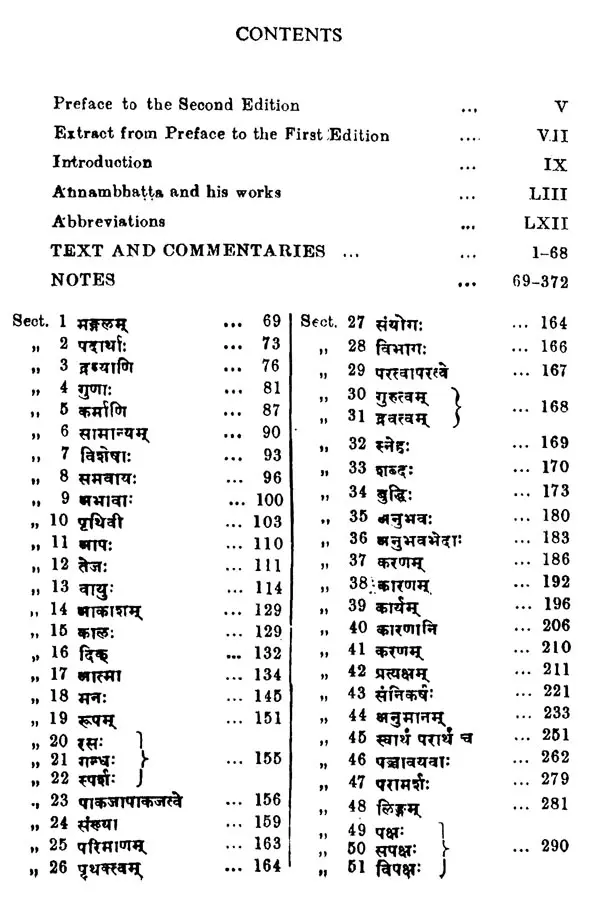
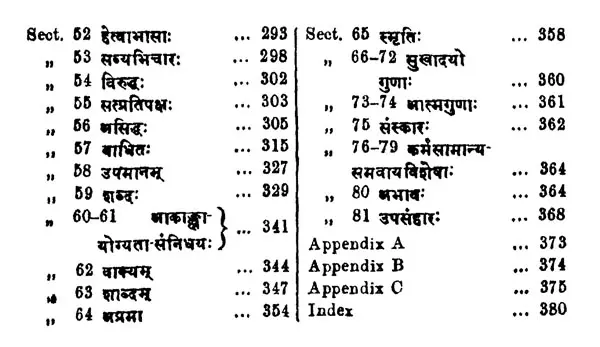
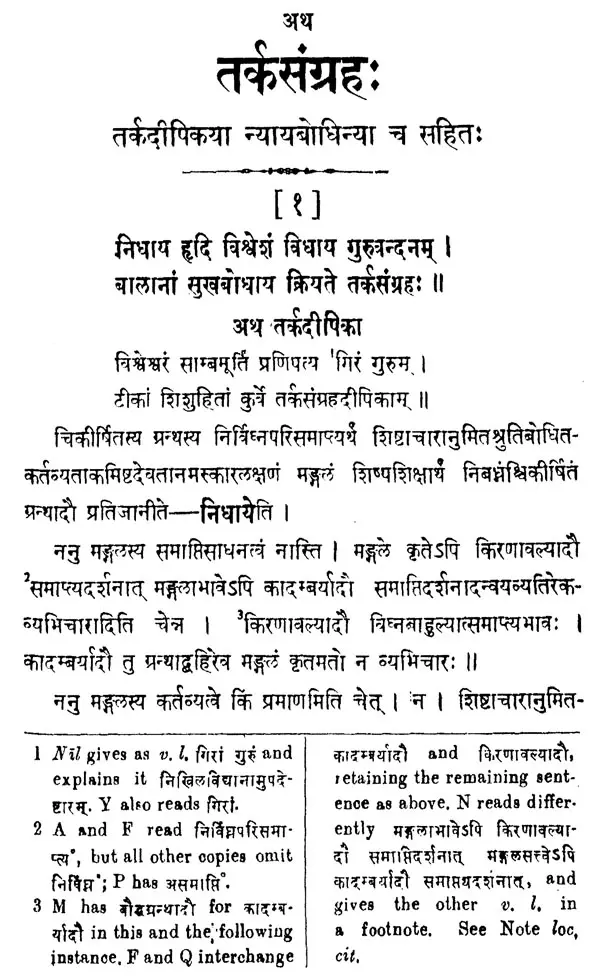

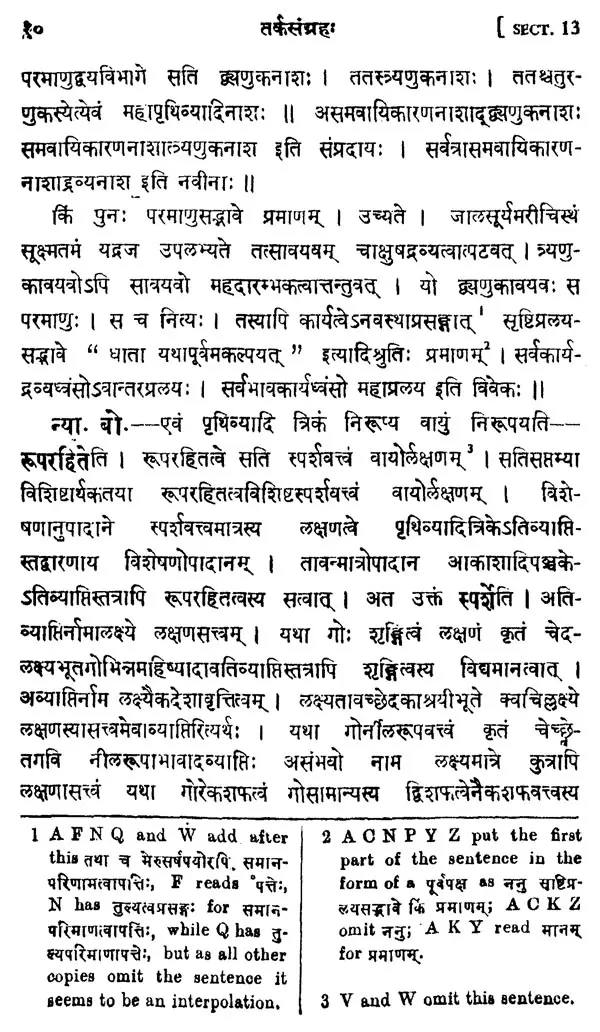
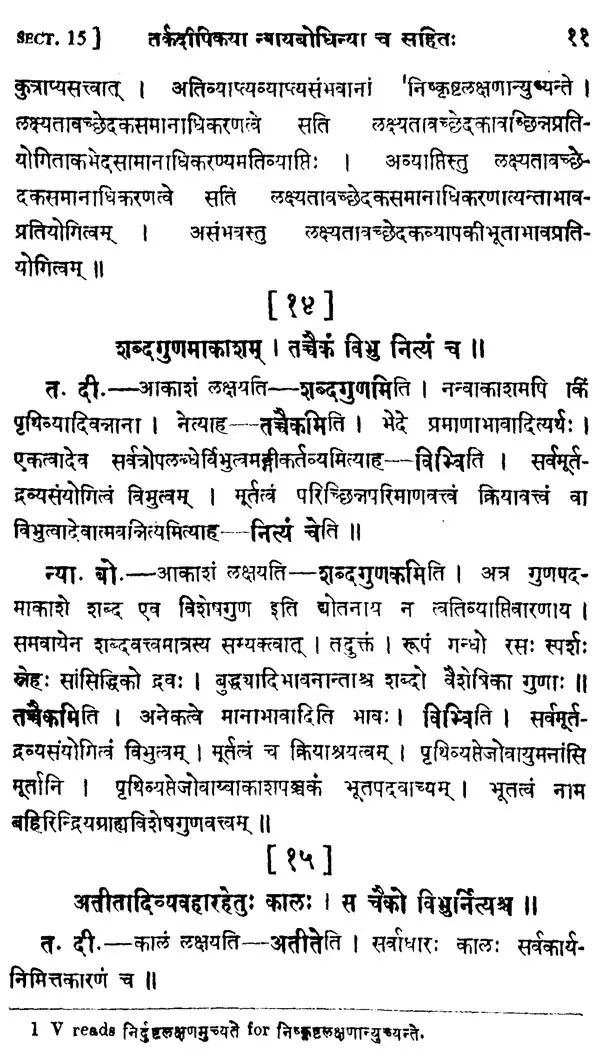

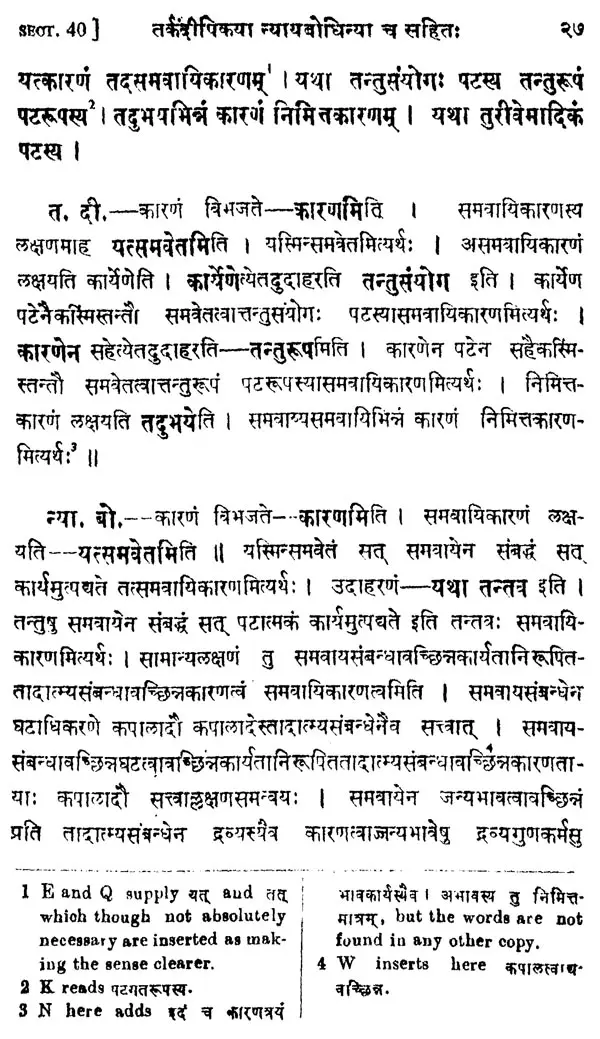
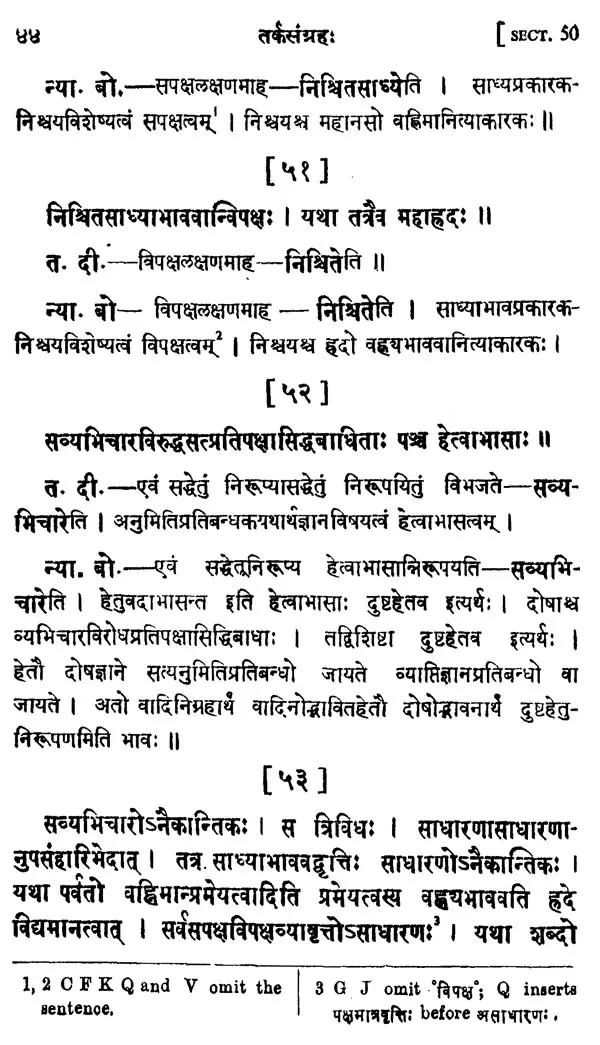
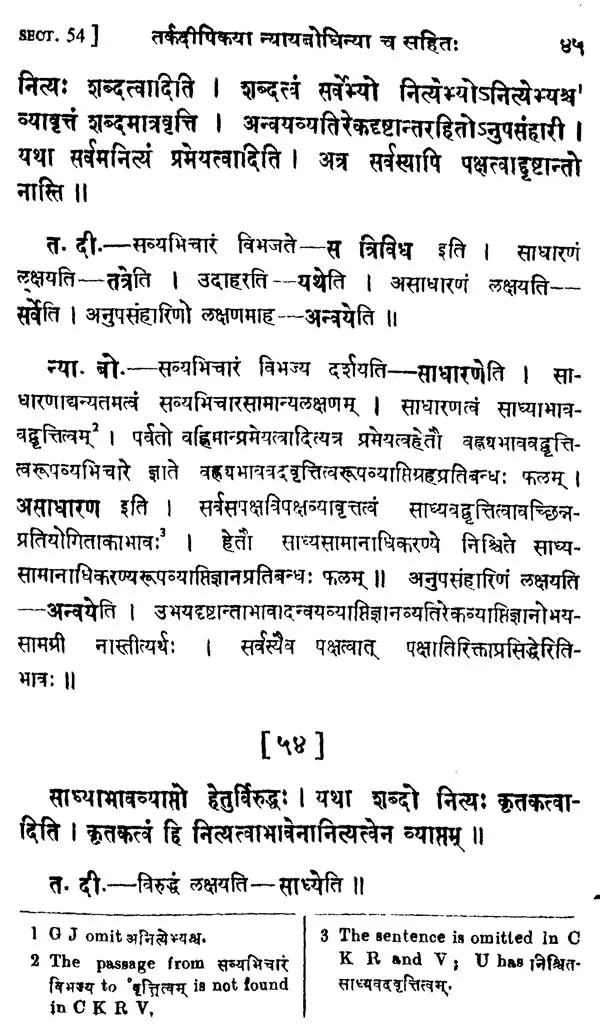
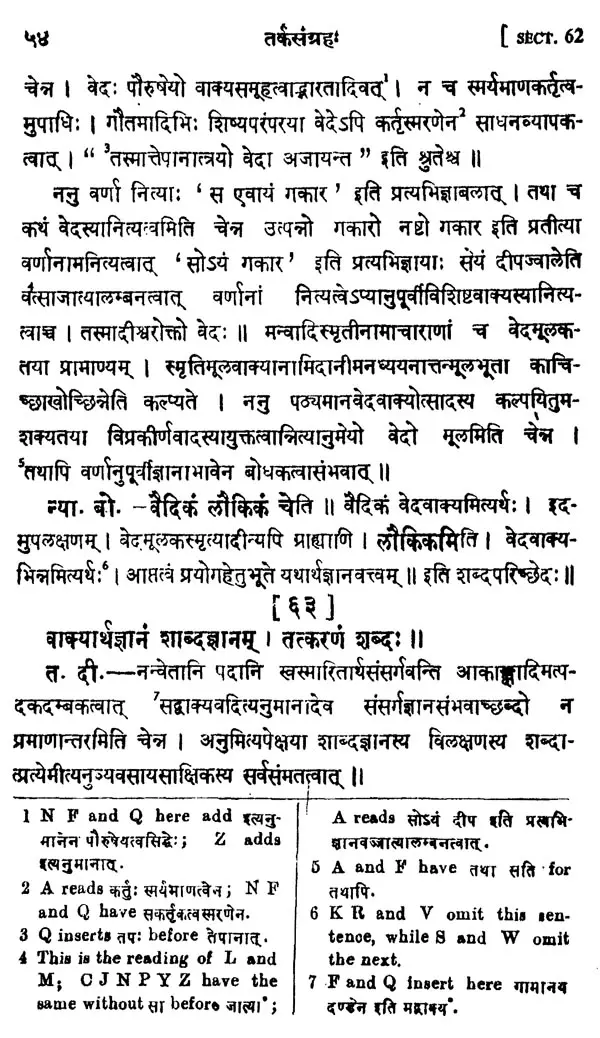
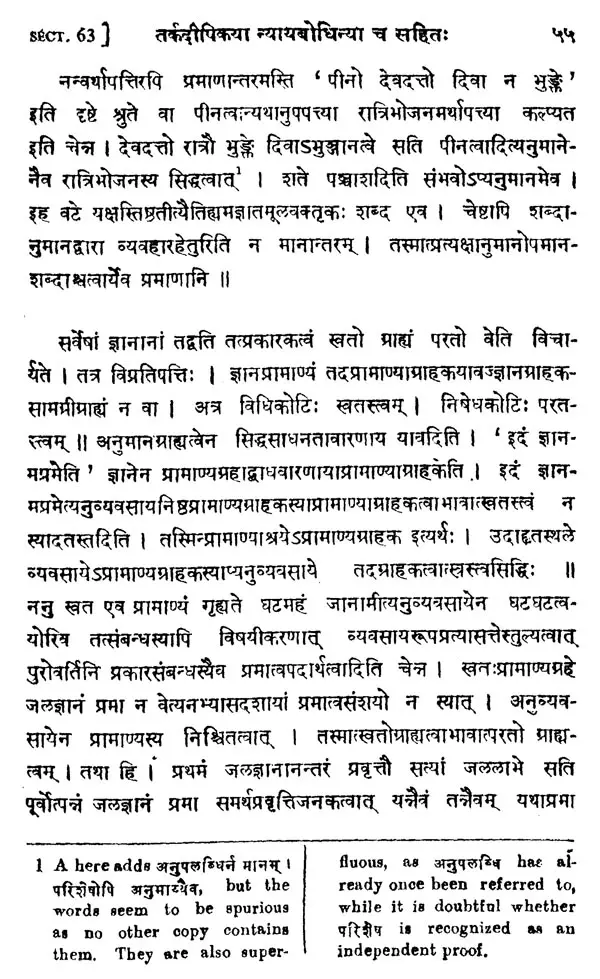

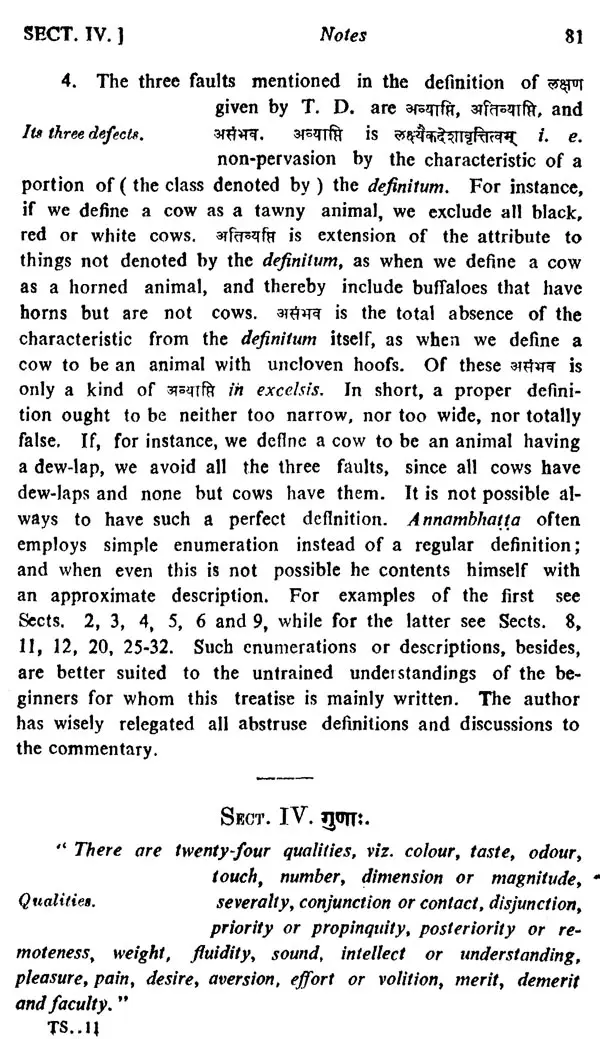
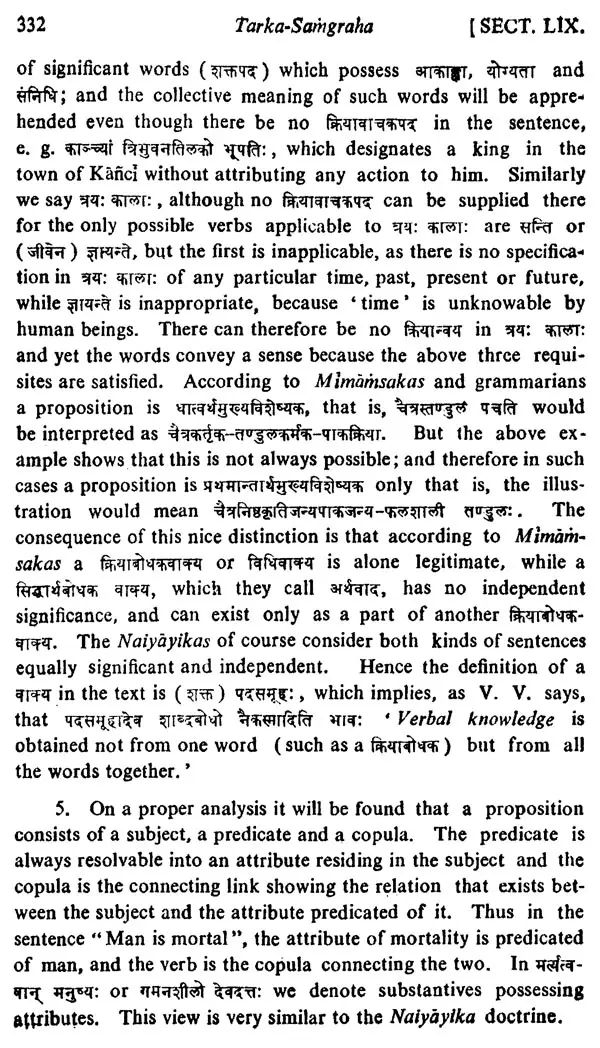
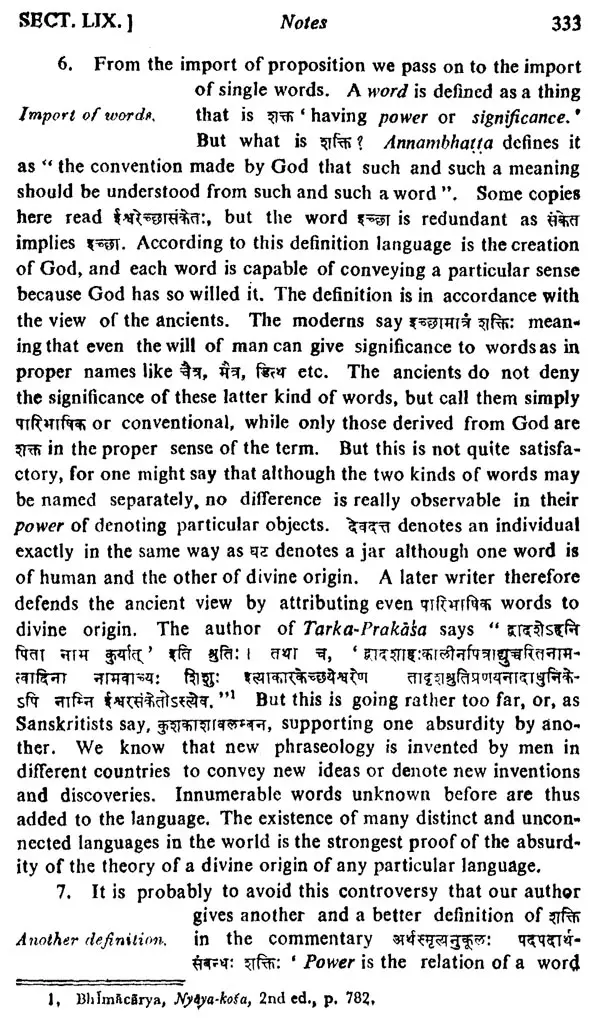
Your cart is currently empty.